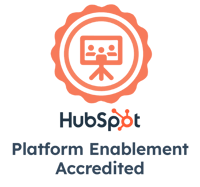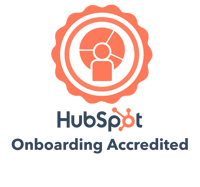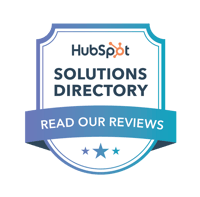What was your reaction?
And what do you do? Do you scroll down until you find the actual recipe? Or do you go back to Google, find a link that starts out with the recipe, and use that instead?
This exact situation is where search intent and search engine optimization (SEO) clash.
Your intent was to find a simple recipe, but what you got instead was a page that was optimized for Google. Ranking on Google is important, but it's just as important to keep people on your page once they come to your site.
That's where search intent optimization comes in. It's the underpinning of all online searches. Understanding it will allow you to create content that keeps people on your site and coming back for more.
What is Search Intent Optimization?
Search intent is the reason why people search. Human intention goes beyond just simple keywords like "shoe store." Consider the subtle differences in each of these searches using the exact same phrase:
- shoe stores near me
- Nike shoe stores
- what is a shoe store
- does a shoe store repair shoes
As Google has become more and more sophisticated, their goal has shifted from a strict focus on keywords to focus on phrases and questions, to more closely align with search intent.
Simply put, Google wants to show searchers results that actually answer their questions. Not just whatever page has the most keywords on it.
How is Search Intent Optimization Different From SEO?
Here's the truth: search intent optimization IS SEO.
Search Engine Optimization (SEO) is the process of structuring your content and website in a way that’s friendly to search engines, with the goal of ranking high when people search online. In the past, this meant a lot of behind-the-scenes technical work. While that's still important to some extent, Google's updates have made the content itself the most important factor when it comes to your online rankings.
Search intent optimization is just one element of a well-rounded SEO strategy, but a pretty vital one.
How Does Search Intent Work?
Yoast breaks down all search intent into four basic categories of need: informational, navigational, transactional and commercial.
Informational intent are searches based on gathering information, both basic and complex. It could be information on the weather, how to grow vegetables, or SEO tips (like this blog!). In this type of search, people have a specific question or want to know more about a certain topic.
Navigational intent are searches to get to a certain website. For example, searching "Facebook" into Google, to try and get to Facebook. Generally speaking, you will rank high for your business' name by default.
Transactional intent are searches based on retail or eCommerce. These are searches with the intent to buy a specific product, like "high waisted jeans" or "cheap sunglasses."
Commercial intent are searches for future purchases. People may know they need a larger item in the future and want to do research online before making a purchasing decision. This could be a washing machine, a business service, etc. Think of this category as a combination of informational and transactional intent.
How Do I Optimize for Search Intent?
This is where audience personas, keyword research and the buyer's journey all come into play.
When building your blogs, landing pages and website pages, it's important to know why people are searching to determine what language and keywords to use.
A good place to start is with topics instead of keywords. Instead of optimizing your page for a generic search like "SEO," narrow your focus to create more targeted content.
For example, when writing this blog I knew that someone coming from Google would be using an informational search intent. They may have heard the phrase "search intent" and want to know what it is and how to use it. I then wrote the blog with the goal of explaining search intent and how to use it.
The more focused your content can be on user intent, the better the user experience. So the best advice is: know the intent behind your content, and how it answers a specific user's specific question.
While ranking on Google is important, it won't help you in the long run if no one stays on your website long enough to read your content. Search intent optimization should be a vital step in your writing process, in order to improve your rankings in Google and provide valuable content to your audience.
Free Guide: Beginner's Guide to Digital Marketing
This in-depth covers everything you need to know to get started with effective digital marketing
What exactly digital marketing is and how it works.
Explore a step-by-step process for running an digital marketing campaign in today’s competitive business landscape.
Best practices for your digital marketing strategy
We walk through how to implement a strategy using digital marketing, email, SEO, social media and online advertising.
How to measure the impact and ROI of your strategy
Make insights-driven business decisions and confidently present the value and impact of marketing efforts in support of top-level business objectives.
BizzyWeb is a Minneapolis-based digital marketing and web design agency that helps companies get the high-quality leads they need to grow and thrive. Our tactics include inbound marketing, SEO, advertising, web design, content creation and sales automation. We are an accredited HubSpot Platinum Partner and we offer full-service HubSpot onboarding, enablement and strategy for new and current users.






